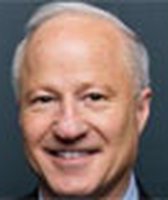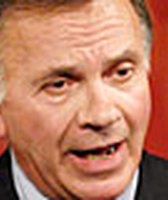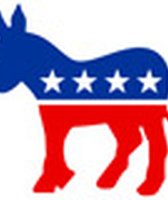Stand up for the facts!
Our only agenda is to publish the truth so you can be an informed participant in democracy.
We need your help.
I would like to contribute
As Republican frontrunner Donald Trump has led the delegate chase, he has complained that the "corrupt and crooked" elections have been "rigged" against him.
But he has repeatedly failed to prove his case that states have stacked the deck against him.
Trump has received a plurality of delegates so far, but he yet hasn’t hit a majority, which is 1,237. It’s that process of delegate selection that has fueled many of his complaints.
We have fact-checked three claims by Trump or his campaign manager Corey Lewandowski related to delegate selection or the primary voting system. Two of the claims were about Florida’s March 15 primary, while the third pertains to the Colorado caucus and state convention. We rated all three statements False on the Truth-O-Meter.
Here is a summary of what we found:
Florida’s winner-take-all primary
Trump has hurled many accusations against Florida’s election -- the home state of former Gov. Jeb Bush (who dropped out a couple weeks before the state’s primary) and U.S. Sen. Marco Rubio. Trump beat Rubio in every Florida county except Rubio’s home county of Miami-Dade, prompting Rubio to suspend his campaign.
Trump argued that Rubio and Bush orchestrated the state’s primary procedures in an effort to prevent him from getting votes.
"You speak about what’s unfair, so in Florida you had 99 delegates," he said in a speech. "And Jeb Bush had it set -- Jeb Bush or Rubio, both of them. They had it set so that the winner takes everything, because they wanted to make sure that I didn't get anything."
Republican officials did hope a winner-take-all primary would benefit Bush or Rubio, but Trump gets some of his facts wrong. A key motivation behind setting the primary was to avoid the state getting penalized, as it had in previous years.
It wasn’t Bush or Rubio who set those rules for the primary. It was the Florida Legislature in March 2015, when it passed a bill setting the date and allowed the state GOP to decide whether to make the contest winner-take-all. Back then, Trump was a potential candidate, but he wasn’t seen as a major threat to Rubio or Bush.
We rated his statement False.
Florida’s delegate selection
Lewandowski, Trump’s campaign manager, said in an interview on Fox News Sunday, "The chairman of the party of Florida, who is an avid and outward supporter of Marco Rubio, gets to appoint 30 of those delegates."
That’s wrong on several levels. State party chairman Blaise Ingoglia doesn’t get to appoint delegates. However, he gets to recommend 15 delegates to the state party’s executive board, which will take a vote in Tampa May 14. So Lewandowski doubled the number and exaggerated Ingoglia’s power. Most of the 99 delegates are chosen by party leaders in congressional districts.
Also, Lewandowski has no proof that Ingoglia is an "avid and outward supporter" of Rubio’s presidential bid. Ingoglia donated $1,250 to Rubio when he was a Senate candidate or a senator, but that was years before Rubio ran for president. In 2014, Rubio endorsed Ingoglia’s state House bid, which he won. Ingoglia was elected by party activists as state chair in January 2015. Ingoglia stayed neutral in the primary and endorsed no one.
We rated this statement False.
Colorado’s caucus
After Ted Cruz swept all 34 delegates at the Colorado Republican convention, Trump branded the state GOP’s caucus system "rigged" and "crooked."
On April 11, Trump told Fox & Friends that the Colorado system for selecting delegates is "rigged"
Trump has performed better in states with primary elections, where his supporters can simply vote at their regular neighborhood polling place. But his campaign has struggled in state caucuses, because it has lacked a strong ground game to shepherd voters through bewildering caucus gatherings that are rife with rules.
The delegate selection process is dominated by party activists and insiders, and this year’s caucuses were hampered -- at best -- by confusion and technical glitches.
But Trump is complaining about rules that were put in place in August, when the Republican presidential race was clogged with 17 candidates. There is no evidence the rules were designed to favor a specific candidate, nor that the context was fixed or "rigged." Trump chose to skip the convention and focus on New York instead. We rated his claim False.
Spot a claim we should fact-check? Email us at [email protected] or tweet #PolitiFactThis
Our Sources
Fivethirtyeight Blog, "Trump’s Right That The GOP Primary Is Unfair — It Favors Him," April 14, 2016
Fivethiryeight Blog, "The GOP’s Wacky Delegate Rules Are Helping Trump," April 5, 2016
See individual fact-checks for sources














































